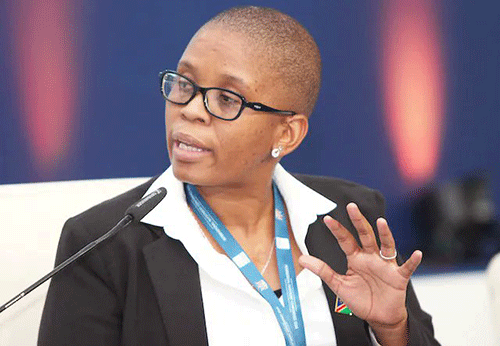George Sanzila
Approval of the budgetary allocation of N$110 million to the National Assembly for the financial year 2022/23 has been deferred after the Speaker of the National Assembly Peter Katjavivi, supported by members of parliament in the National Assembly, bemoaned the allocation they described as inadequate. Katjavivi introduced the budgetary allocation in the House last week.
During his introduction, Katjavivi noted the financial allocation only provides for personnel expenditure, utilities and some statutory obligations, leaving out one of the core functions of Parliament – oversight – which is performed by the various Standing Committees of the National Assembly.
He was further not pleased with the lack of budgetary provision for the maintenance of the parliament building, which he says has stood for more than a century without refurbishment.
Other necessities, such as cleaning material and stationery, are also not catered for in the allocation, according to Katjavivi. He noted that despite the increase in the number of lawmakers from 72 to 104 since 2015, the budget ceiling of the legislative arm of the State has remained stagnant.
“This increase, in terms of the number of MPs, obviously resulted in an increase in personnel expenditure and other benefits that must be paid to the members,” reiterated Katjavivi.
Hon. Katjavivi added that during the previous financial year of 2021/2022, the National Assembly was allocated N$117 million. Despite surviving with this meagre allocation, it was subsequently reduced by N$6 million during the Mid-Term Budget review, further affecting the already-cash-strapped institution. The speaker stated that the National Assembly had a number of targets to meet through its two main units, namely legislative management, and policy coordination and support services. Through these units, the National Assembly provides leadership and guidance to the institution in respect of parliamentary proceedings and procedures, as well as other related administrative services to the presiding officers and members of the National Assembly. Other equally important services rendered include support to the oversight function of the National Assembly through administrative, secretarial, safety as well as professional and technical assistance to the members of parliament. The National Assembly has eight parliamentary standing committees, whose mandate is to oversee the work of various offices, ministries and agencies (OMAs) of government, including state-owned enterprises.
In keeping with participatory democracy and the involvement of the electorate in the law-making process, standing committees further hold public hearings and consultations with the public on bills, motions and petitions. Katjavivi noted he was fully aware of the economic challenges facing the country, aggravated by the recent onslaught of the Covid-19 pandemic, but added the constitutional mandate of the legislature could not be overstated.
“The current allocation for the National Assembly will hamper the efficiency of the Assembly to carry out its constitutional mandate. Thus, I humbly appeal to the minister of finance to reconsider the budgetary allocation for the National Assembly to ensure it meets the expectations as bestowed upon it by the constitution. If we are to fully appreciate and realise the principle of participatory democracy in the law-making process, we need to adequately finance the activities of parliament,” urged the speaker. In spite of the lack of financial resources over the years, Katjavivi revealed the National Assembly during the previous financial year tabled 11 bills, of which four were passed; 11 international instruments, of which nine were adopted – and 98 reports, of the auditor general, among others. About 15 petitions were also received, resulting in extensive public consultations and hearings by relevant standing committees.
The speaker further revealed there has been notable progress with regard to the establishment of a Parliamentary Service Commission.
“We have made some progress with regard to the Parliamentary Service Commission Bill.
“Comparative studies have been done, and we are now reviewing the draft Bill internally. Thereafter, we are considering seeking the services of a seasoned legal drafter to finalise the Bill. This is work in progress,” promised Katjavivi.
The protracted Parliamentary Service Commission Bill is a long-held dream by the legislature, meant to detach parliament from the Public Service Commission.
Both MPs from the ruling party and the opposition supported the Speaker in calling for the amendment of the Appropriation Bill, specifically the budgetary allocation for the National Assembly, noting that parliament was one of the three main organs of the state and, therefore, needed to be equally prioritised. One of the lawmakers Tobie Aupindi noted that oversight remained a core function of parliament and that lack of funding would render the legislature a toothless institution. Approval on the budgetary provision of the National Assembly was then postponed to this Tuesday, pending consideration by the Minister of Finance. The National Assembly is currently debating the Annual Appropriation Bill. One of the main functions of parliament is to discuss and pass (approve) the budget.


